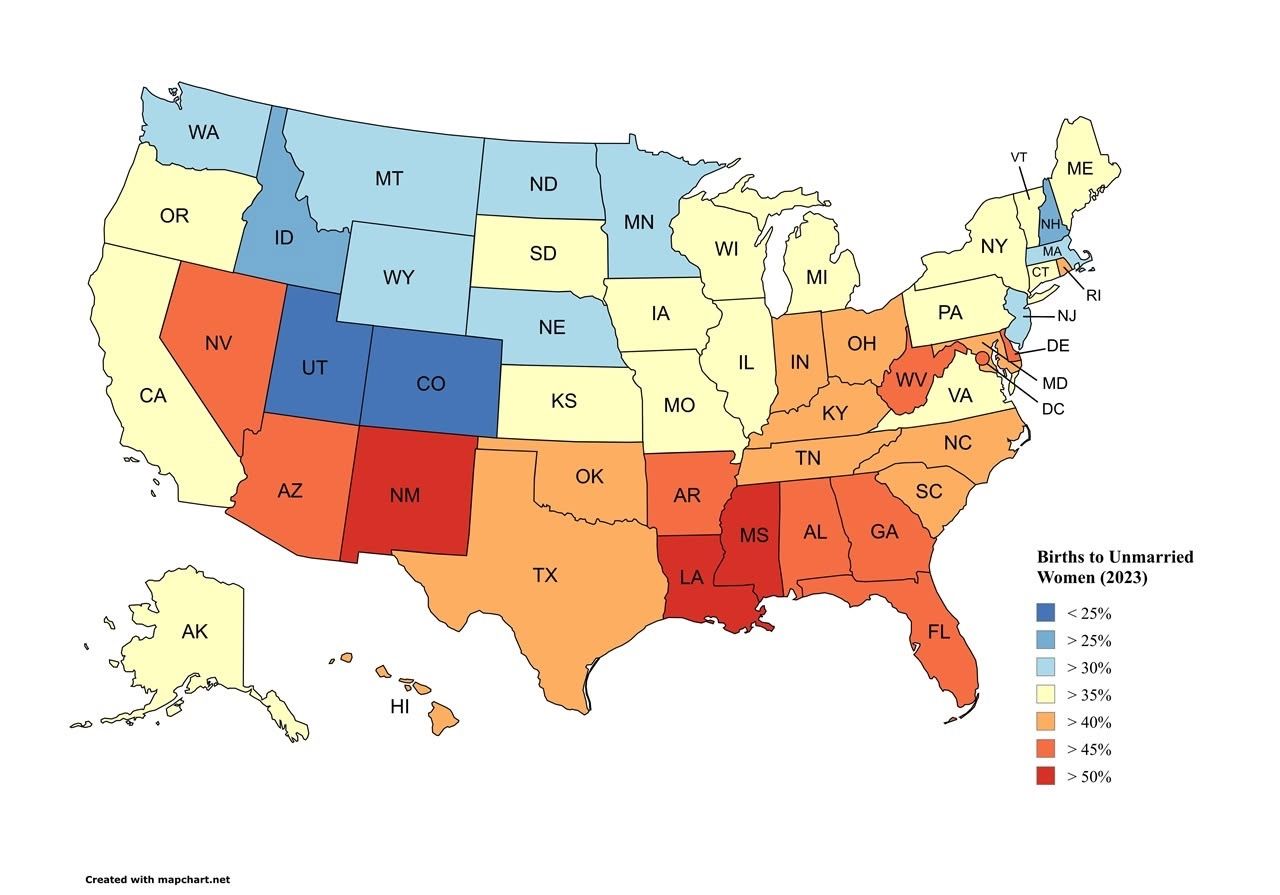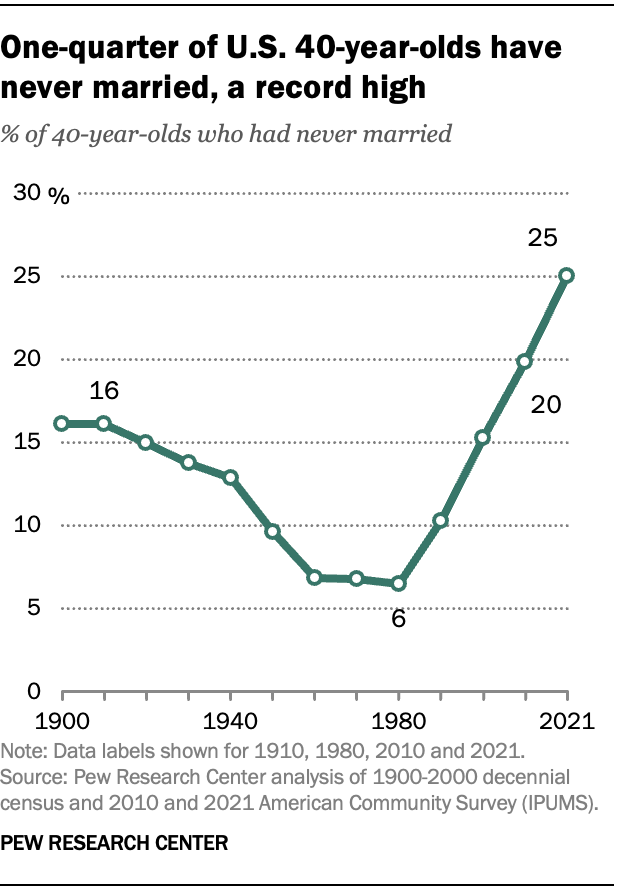Mildly interesting
-
Meh, being a billionaire ain’t what it used to be. Being a millionaire is only upper middle class.
-
@jon-nyc said in Mildly interesting:
This is sad.

It is.
Now overlay that map with one with abortion rates. My bet is that one is even sadder.
-
@jon-nyc said in Mildly interesting:
Also sad.

Wow, the numbers in the early 1900s were surprisingly high…
-
@jon-nyc said in Mildly interesting:
That surprised me too. More spinsters as med died more frequently at a younger age?
I had a surprising number of maiden great aunts who were born in the 1890's, but I think that was probably due to WW1. The impact of that war would have been less noticeable in the US as a considerably smaller proportion of the male population died.
Did the US Civil War affect the 1900 figures?
-
@jon-nyc said in Mildly interesting:
That surprised me too. More spinsters as med died more frequently at a younger age?
I had a surprising number of maiden great aunts who were born in the 1890's, but I think that was probably due to WW1. The impact of that war would have been less noticeable in the US as a considerably smaller proportion of the male population died.
Did the US Civil War affect the 1900 figures?
@Doctor-Phibes said in Mildly interesting:
@jon-nyc said in Mildly interesting:
That surprised me too. More spinsters as med died more frequently at a younger age?
I had a surprising number of maiden great aunts who were born in the 1890's, but I think that was probably due to WW1. The impact of that war would have been less noticeable in the US as a considerably smaller proportion of the male population died.
Did the US Civil War affect the 1900 figures?
@Doctor-Phibes said in Mildly interesting:
@jon-nyc said in Mildly interesting:
That surprised me too. More spinsters as med died more frequently at a younger age?
I had a surprising number of maiden great aunts who were born in the 1890's, but I think that was probably due to WW1. The impact of that war would have been less noticeable in the US as a considerably smaller proportion of the male population died.
Did the US Civil War affect the 1900 figures?
That’s what I was wondering about…But then, there’s an old saw about there being no bigger boost in new marriages and babies than a war breaking out. Maybe that’s not as true as advertised.
-
@Axtremus said in Mildly interesting:
Reagan broke it.The birth control pill broke it. -
@Axtremus said in Mildly interesting:
Reagan broke it.The birth control pill broke it.@LuFins-Dad said in Mildly interesting:
@Axtremus said in Mildly interesting:
Reagan broke it.The birth control pill broke it.Eisenstadt v. Baird was decided in 1972.
-
And you expect the cultural ramifications to be immediate? The majority of the women of 32 years of age were already married in 1972… This would have had far greater impact on women younger than 30, with the results becoming noticeable ~ 1980. It also coincides with higher divorce rates, and more women entering the workplace, which completely shifted the economy for good and ill.
-
@jon-nyc said in Mildly interesting:
That surprised me too. More spinsters as med died more frequently at a younger age?
I had a surprising number of maiden great aunts who were born in the 1890's, but I think that was probably due to WW1. The impact of that war would have been less noticeable in the US as a considerably smaller proportion of the male population died.
Did the US Civil War affect the 1900 figures?
@Doctor-Phibes said in Mildly interesting:
@jon-nyc said in Mildly interesting:
That surprised me too. More spinsters as med died more frequently at a younger age?
I had a surprising number of maiden great aunts who were born in the 1890's, but I think that was probably due to WW1. The impact of that war would have been less noticeable in the US as a considerably smaller proportion of the male population died.
Did the US Civil War affect the 1900 figures?
Me too. My great aunts raised my grandpa in MA. They were from Quebec and relocated to the U.S.. The way I heard it, it was due to the Spanish Flu .. grandpa’s parents died; he was left an orphan, but too young yet to work in factories there.
Here, in Alberta, I know ladies, being the last (youngest) sisters, who never marry. They stay in their family homes to care for their parents. Not uncommon.
